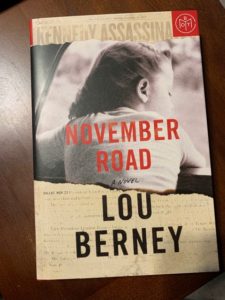Can Going to a Museum Help Your Heart Condition? In a New Trial, Doctors Are Prescribing Art.
Art museums offer quite a few side benefits for visitors—from a venue for classes, lectures, film screenings and concerts to a place to grab a meal, conduct academic research or shop for reliably odd presents in the gift store. But now, one might add to that list museums as a medical treatment for asthma, cancer, diabetes, dementia, eating disorders, heart disease and a number of other physical and cognitive ailments. The medicine, according to a number of doctors, is the art itself.
Two thousand doctors who are members of Médecins francophones du Canada will each be able to write 50 prescriptions a year for patients to attend the Montreal Museum of Fine Arts for free. (Regular admission costs 23 Canadian dollars.)
Many in the medical field understand the benefits of art, dance, music and writing on those suffering from cognitive and physical impairments and, in fact, a century’s worth of clinical research has been conducted on the benefits of the arts in healthcare, according to Naj Wikoff, a faculty member of Lesley University’s Institute for Arts & Health and vice-president of the San Diego-based National Organization for Arts & Health.
The article offers a history of programs which use exposure to art in various forms to treat mental and physical ailments.
I Wrote an Historical Novel About the JFK Assassination. I Was Shocked By What I Found.
 Lou Berney, author of the recently published novel November Road, details the findings of his research for writing the book. (I have this book on my TBR shelf but haven’t read it yet.) Because there have been thousands of books written about the main characters involved in the assassination—John F. Kennedy, Lee Harvey Oswald, and Jack Ruby—Berney explains, he decided “to steer clear of the main players and focus instead on the edges of the assassination, on characters whose lives are changed, and threatened, by the death of the president.”
Lou Berney, author of the recently published novel November Road, details the findings of his research for writing the book. (I have this book on my TBR shelf but haven’t read it yet.) Because there have been thousands of books written about the main characters involved in the assassination—John F. Kennedy, Lee Harvey Oswald, and Jack Ruby—Berney explains, he decided “to steer clear of the main players and focus instead on the edges of the assassination, on characters whose lives are changed, and threatened, by the death of the president.”
The official Warren Commission Report concluded that there was no conspiracy in the Kennedy assassination. Yet many conspiracy theorists believe that the KGB, the mafia, or the CIA—or perhaps all three—was involved. After his research Berney concluded that “the facts themselves are almost as incredible” as the conspiracy theories.
my perspective on my novel was profoundly altered by the discovery of all those secret government schemes and cover-ups, of organized crime woven tightly into the very fabric of American politics, of so many astoundingly colorful characters and a president who was so reckless in his personal life. I opened the door to that world, walked through, and never looked back.
PAPER FOR BOOKS IS GETTING HARDER TO COME BY: WHY THE BACKBONE OF PUBLISHING MAY MAKE BOOK PRICES RISE
With gift-giving season approaching, booksellers are gearing up for seeing more traffic through their doors and at the registers. But this year, more than any year in recent memory, booksellers are increasingly worried about whether there will be enough copies of the biggest titles.
With all the talk about ebooks killing print books, I was surprised to read how much the rising cost of paper may contribute to the cutback of printed books. I never thought about how much the cost of paper influences not only the price but also the availability of books. This is a fascinating look at what’s usually a behind-the-scenes aspect of the publishing industry.
Laura E. Weymouth on Insightful YA Fantasy Novels that Explore Mental Health
Even before I went back to school for my doctorate in psychology, I was interested in how mental illness is portrayed in fiction. Here’s a list from novelist Laura E. Weymouth of five YA novels that “explore life with mental illness.”
© 2018 by Mary Daniels Brown

